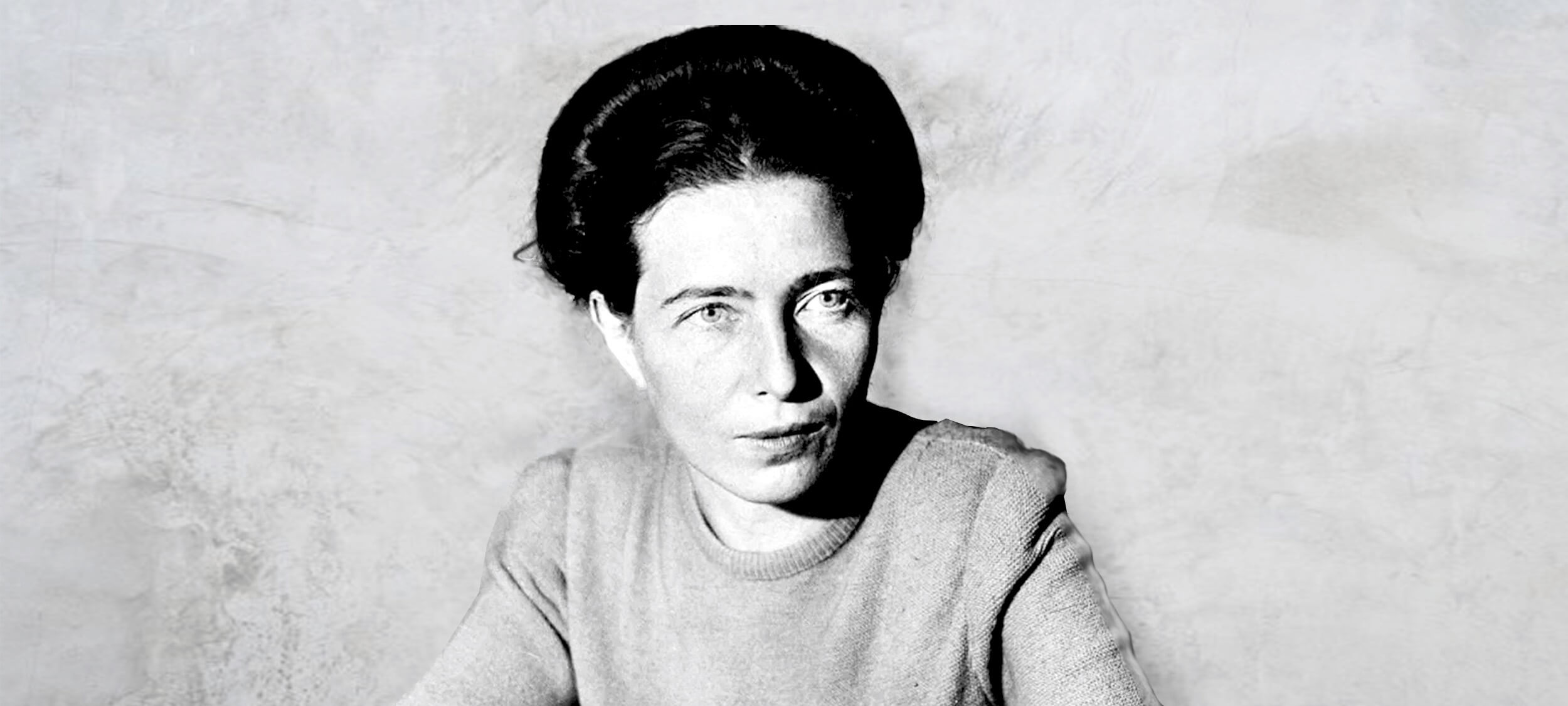
Big Thinker: Simone de Beauvoir
Big thinkerRelationshipsSociety + Culture
BY The Ethics Centre 18 MAY 2017
Simone de Beauvoir (1908—1986) was a French author, feminist and existential philosopher. Her unconventional life was a working experiment of her ideas – that one creates the meaning of life through free and authentic choices.
In a cruel confirmation of the sexism she criticised, Beauvoir’s work is often seen as less important than that of her partner, Jean Paul Sartre. Given the conclusions she drew were hugely influential, let’s revisit her ideas for a refresher course.
Women aren’t born, they’re made
Beauvoir’s most famous quote comes from her best-known work, The Second Sex: “One is not born, but rather becomes, a woman”.
By this she means there is no essential definition of womanhood. Women can be anything, but social norms work hard to fit them into a particular kind of femininity. These social norms are patriarchal and born out of the male gaze.
The Second Sex argues that it’s men who define what women should be. Because men have always held more power in society, the world looks the way men want it to look. An obvious example is female beauty.
Beauvoir holds that through norms around removing body hair, makeup and uncomfortable fashion, women restrict their freedom to serve the male gaze.
This objectification of women goes deeper, until they aren’t seen as fully human. Men are seen as active, free agents who are in control of their lives. Women are described passively. They need to be protected, controlled or rescued.
It’s true, she thinks, that women aren’t always seen as passive objects, but this only happens when they impersonate men.
“Man is defined as a human being and woman as a female – whenever she behaves as a human being she is said to imitate the male.”
For Beauvoir, women are always cast into the role of the Other. Who they are matters less than who they’re not: men. This is an enormous problem for the existentialist, for whom the purpose of life is to freely choose who they want to be.
Everyone has to create themselves
As an existentialist, Beauvoir believed people need to live authentically. They need to choose for themselves who they want to be and how they want to live. The more pressure society – and other people – place on you, the harder it is to make an authentic choice.
Existentialists believe no matter the amount of external pressure, it is still possible to make a free choice about who we want to be. They say we can never lose our freedom, though a range of forces can make it harder to exercise. Plus, some people choose to hide from their freedom in various ways.
Some of us hide from our freedom by living in bad faith, embracing the definitions other people put on us. Men are free to reject the male gaze and stop imposing their desires onto women but many don’t. It’s easier, Beauvoir thinks, to accept the social norms we’re born into. To live freely and authentically is the greater struggle.
The importance of freedom led Beauvoir to suggest liberated women should not try to force other women to live their lives in a similar way. If a small group of women choose to reject the male gaze and define womanhood in their own way, that’s great.
But respecting other people means allowing them to live freely. If other women don’t want to join the feminist mission, Beauvoir believed they should not be forced or pressured to do so. This is important advice in an age where online shaming is often used to force people to conform to popular social views.
We’re as ageist as we are sexist
Later in life, Beauvoir applied her arguments about women in The Second Sex to the plight of the elderly. In The Coming of Age, she argued that we make assumptions and generalisations about the elderly and ageing, just like we do about women.
To her, it is as wrong to ‘other’ women because they are different from men, as it is to ‘other’ the elderly because they are different from the young. Feminist philosopher Deborah Bergoffen explains Beauvoir’s view: “As we age, the body is transformed from an instrument that engages the world into a hindrance that makes our access to the world difficult”.
Like women in The Second Sex, the elderly remain free to define themselves. They can reject the idea that physical decline makes them unable to function as authentic human beings.
In The Coming of Age, we see some of the foundations of today’s discussions about ageism and ableism. Beauvoir urges us to come back to a simple truth: the facts of our existence – what our bodies are like, for example – don’t have to define us.
More importantly, it’s wrong to define other people only by the facts of their existence.
Ethics in your inbox.
Get the latest inspiration, intelligence, events & more.
By signing up you agree to our privacy policy
You might be interested in…
Opinion + Analysis
Business + Leadership, Relationships
What makes a business honest and trustworthy?
Opinion + Analysis
Politics + Human Rights, Society + Culture
Respect for persons lost in proposed legislation
Opinion + Analysis
Politics + Human Rights, Relationships
A critical thinker’s guide to voting
Opinion + Analysis
Health + Wellbeing, Relationships




